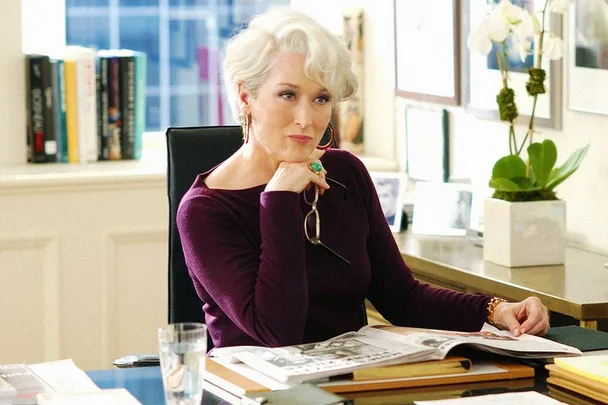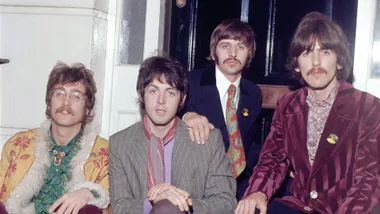Applying for a new job can be exciting! However, depending on the role and company, the job interview process can be lengthy, stressful and (to be quite honest) daunting. These days, it’s not uncommon for companies to require multiple interviews with different people at each stage.
To ensure you’re calm, collected and professional (or at least appear to be), preparation is key! Here, we’ve summed up exactly what to expect when interviewing.
RELATED: What To Wear On Your Next Job Interview
Interview Process 101
The interview process differs from company to company and can take on several different formats. From behavioural tests to group interviews, it’s wise to be well versed on the different types of interviews and how to approach them confidently – nobody likes a surprise!
Despite the many different types, the most common and traditional process you should expect can be broken down into three stages:
1. Screening interviews: Normally conducted over the phone. The purpose of screening interviews is for the recruiter to determine whether applicants have suitable qualifications for the role.
2. Phone interviews: This is the next step for employers to narrow down their talent pool and select applicants to come in for an in-person interview.
3. In-person interviews: Every employer will have a different in-person interview strategy. You may be required to attend one, two or three in-person interviews. You may even be required to complete personality, psychometric or skills testing to ensure that you are a good match for the position.
You may have your first in-person interview with a hiring manager, and then be asked back for a second interview with a direct manager who will assess whether you are going to be a good fit for their team and company culture.
10 Most Common Interview Questions
There’s really no way to know exactly what you will be asked in an interview (sorry). However, there are some clear and common questions that you should definitely prepare answers for.
Here are the 10 most asked interview questions and some tips on how to craft answers.
Q: Tell me about yourself
Generally, this is one of the first things you will be asked. You need to be prepared to talk about yourself and why you will be a fantastic fit for the job and the company’s culture. The sorts of things that are good to share are:
- Personal interests/experiences (not directly work related).
- Your education.
- What motivates you.
- Fun facts to showcase your personality and make the interview a bit more interesting.
Q. Why should we hire you?
You need to be prepared with a confident, concise sales pitch to explain what you can offer and why you are the best candidate for the job. Although it’s often hard to talk yourself up, this is not the time to be shy and modest. Before the interview, it’s worth preparing your response so it’s aligned with the qualifications and requirements in the job description.
Q: What is your greatest strength?
It’s good to prepare beforehand and frame up your strengths to match what they are looking for in the job description. e.g. if you are applying for a sales job you might say something like:
“One of my best strengths is being extremely target driven. In my previous job, I consistently exceeded my sales target every quarter and received awards for being in the top tier of sales reps”
Q: What is your greatest weakness?
This is where you can turn a negative into a positive. Try to show your interviewer what you have done to up-skill and improve yourself throughout your career.
Q: Why are you leaving your current job (or why have you left)?
Try to keep things positive, and avoid saying anything negative about your previous employer as this reflects badly on you. Be careful what you say as some negativity can raise a red flag with your interviewer. Stick with the facts, be direct and focus on how interested you are in the new opportunities the position can offer you.
Q: What are your salary expectations?
Sometimes this can stump the most accomplished interviewee. Research the job market and give a range that is realistic. Don’t undersell yourself as you run the risk of being shortchanged.
Q: How do you handle stress and pressure?
The best way to handle this is to talk about how you handled a stressful situation well in a previous role or what you did when something went wrong.
Q: Why do you want this job?
This is your chance to show that you have researched the job and the company so make sure you do your research. This will help you to reinforce that you are a great match for the company culture.
Q: Tell me about a difficult work situation/project/client and how you overcame it?
This is one of the favourite behavioural interview questions you will come across. Similar to the stress question, you need to be prepared to talk about how you successfully dealt with a tough situation in a previous role. You need to share details so you are believable and engaging, and try to keep things positive.
Q: What are your goals for the future?
This is where the interviewer is fishing for valuable information about your stackability. Stay focused on the job and company you are interviewing with, and recap how the position aligns with your long term goals.
When is it appropriate to ask your own questions?
Sometimes it can be difficult to know if it’s the right time to ask questions. Generally, at the end of the interview, you will be asked if you have any questions. You may also be asked at certain points in the interview if you have any questions. However, if at any point you have a burning desire to ask a question or seek clarification, wait for a pause in the conversation and ask away.
To make a good impression, it pays to have some smart questions ready to ask your interviewer. This will stop you from appearing disinterested or unprepared. Use these questions as a way to find out more information about the role, and uncover if you are a good fit with the company’s culture.
10 Smart Questions To Ask Your Interviewer
Q: What are some of the most important qualities you need to succeed in this role?
This can help you gather valuable information that’s not in the job description, and learn about the company culture and expectations so you can show that you are a good fit.
Q: Can you tell me more about what a typical day in this role would look like?
This helps to clarify the combination of duties mentioned in the job description. This question is a great way to find out what the role is really like day in and day out.
Q: What are your expectations after one month, two months, one year etc?
This will help determine how steep your learning curve will be and how much time you will spend on training. It will help you to determine if you have the experience to sink or swim.
Q: Can you tell more about your company culture?
This is another chance to make sure you are comfortable with the culture and dynamic of this company.
Q: What do you see as some of the biggest challenges in the role?
It’s good to uncover trends and issues in the industry. You may also be able to show areas where you have the skills and experience to overcome these types of challenges.
Q: What are the next steps in the hiring process?
This demonstrates your eagerness to move forward in the process. It will also allow you to understand their timelines so you can follow up at the most appropriate times.
Q: How long did the previous person working in this role hold the position for?
This will give you a good insight as to what the staff turnover is like, and raise a red flag if there is a consistent pattern. This will help you identify if there are internal issues like a difficult manager, unrealistic targets etc. It may be worth asking a follow-up question like: Do you have a sense of what has led to this high turnover?
Q: What do you like about working here?
This question will give you more perspective on the company culture.
Q: What is the typical career path for someone in this role?
This question helps to understand how career advancement works and whether they promote from within. It also helps you show that you are interested in growing with the organisation.
Q: Looking back at previous people, what differentiated the ones who were really great at the role from those who were just good?
This question goes straight to the heart of what the hiring manager is looking for. It makes you sound like you are aiming to do extraordinary work, and like you are conscientious and driven. These are big things in hiring managers eyes.










